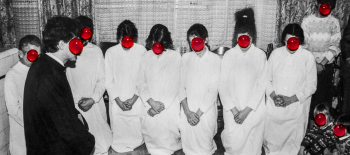“Although the past is a constant theme in Rozycki’s work, the present erupts with no less urgency . . . he witnesses the ant-like unimportance of human beings viewed from a cosmic perspective.”
–Helen Vendler, Harvard University
The hero of the mock poem, Grandson, leaves his hometown of Opole, in the western Polish region of Silesia, to organize a family reunion in the Ukraine where his family had lived before World War II–before being forcibly resettled along with many thousands of other Poles. In this, his sixth book, Tomasz Rozycki talks back, both to history and to important literary predecessors such as Czesław Miłosz and Adam Mickiewicz, in language that is as playful as it is masterful. Twelve Stations is a masterful work of contemporary world poetry by one of its most outstanding practitioners.
In 2004 Twelve Stations won the prestigious Koscielski Foundation Prize and was named best Book of the Spring 2004 by the Raczyński Library in Poznań. Its translation brought Bill Johnston the 2016 Found in Translation Award (already his second).
Tomasz Różycki is a poet, critic, and translator. Over the last ten years, he has garnered almost every prize Poland has to offer, as well as widespread critical and popular acclaim in translation in numerous languages. Różycki is the author of seven volumes of poetry, most recently Kolonie (Colonies, translated by Mira Rosenthal) and Księga obrotów (The Book of Rotations). Over the course of his career, he has developed an extraordinarily distinctive, personal poetic voice that combines highly concrete imagery with evocative references to the historical legacy of his family and his time. He has lived his whole life in Opole, a previously German city that was repopulated by Poles relocated from the Ukrainian area of eastern Poland taken over by the Soviets after World War II. He is considered to be an inheritor of the tradition of Czesław Miłosz and Adam Zagajewski, and his highly formal work deals with questions of both literary and ancestral tradition. His awards include the Krzysztof Kamiel Baczyński Prize (1997), the Czas Kultury Prize (1997), The Rainer Maria Rilke Award (1998), the Kościelski Foundation Prize (2004), and the Joseph Brodski Prize from Zeszyty Literackie (2006). He has been nominated twice for the Nike Prize (Poland’s top literary honor) and once for the Paszport Polityki (2004). He lives in his hometown of Opole with his wife and two children and teaches at Opole University. Zephyr Press has also published his The Forgotten Keys and Colonies.
Bill Johnston, Professor of Comparative Literature at Indiana University, Bloomington, is one of the leading translators of Polish literature in the English-speaking world. He has translated dozens of Polish works from the Renaissance to the present day, including contemporary writers such as Magdalena Tulli, Andrzej Stasiuk, Witold Gombrowicz and others. He has won many prizes: most recently, the Transatlantyk Prize for translation. His translation of Wieslaw Mysliwski’s novel Stone Upon Stone won the 2012 Best Translated Book award for fiction, the PEN Translation Prize and the AATSEEL Translation Award. In 2013 he was awarded a Guggenheim Fellowship to complete a new translation of Adam Mickiewicz’s Pan Tadeusz, the Polish national epic poem.
Twelve Stations
By Tomasz Różycki
Translated by Bill Johnston
Published by Zephyr Press, 2015
ISBN 978-0983297048
Buy online



